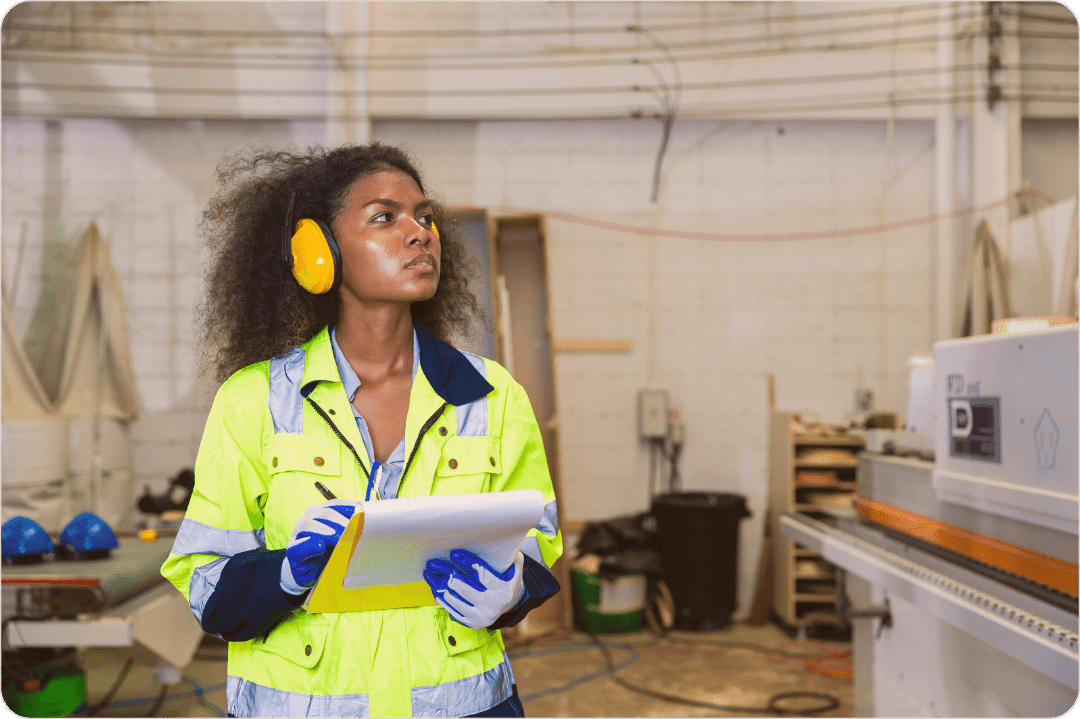Florida’s workforce spans industries like healthcare, hospitality, construction, utilities, and agriculture—many of which require employees to work alone or in remote locations. Whether it’s a home healthcare nurse in Miami, a field technician in the Everglades, or a maintenance worker at a resort, lone workers face increased risks due to their isolation. While Florida does not operate a state-run occupational safety and health program, employers must follow federal OSHA regulations.
This guide explains how lone worker safety is addressed in Florida and what employers must do to meet compliance and protect their teams.
On This Page
Our Guide To Lone Worker Safety Policy And Legislation In Florida
Florida is a federal OSHA state, meaning all occupational safety and health regulations are enforced by the Occupational Safety and Health Administration (OSHA). While OSHA does not currently have a regulation specific to lone workers, its General Duty Clause requires employers to provide a workplace free from recognized hazards, including those associated with working alone.
In Florida’s climate and geographic landscape, employers must also consider the environmental and weather-related risks lone workers may face—such as heat exposure, wildlife encounters, or sudden storms. Risk assessments and preventative safety planning are essential to ensure compliance and worker protection.
How Florida Defines A Lone Worker
There is no legal definition of a “lone worker” specific to Florida, but the term generally refers to employees who perform job duties without direct supervision or nearby coworkers. Lone workers are particularly vulnerable in emergency situations where immediate assistance is not available.
Common examples of lone workers in Florida include:
- Home healthcare providers and hospice staff
- Utility workers and inspectors in rural or remote locations
- Night security guards at facilities or gated communities
- Delivery drivers and mobile service providers
- Cleaning and maintenance staff during off-hours
- Agricultural workers operating machinery in isolated fields
Understanding where and when employees may be working alone is the first step in designing a safety strategy that keeps them secure.
Employing A Lone Worker In Florida
Employers in Florida must ensure they meet federal OSHA requirements when managing lone workers. This includes taking proactive steps to identify potential hazards and mitigate them effectively.
Recommended strategies include:
- Conducting Job Hazard Analyses (JHAs): Evaluate all aspects of the role to determine risks associated with working alone.
- Establishing Communication Protocols: Use reliable systems such as mobile safety apps, radios, or scheduled call-ins to stay in contact.
- Creating Emergency Action Plans: Lone workers should be trained and equipped to respond to medical issues, accidents, or threats.
- Providing Appropriate Safety Training: Workers need to understand their risks and the resources available to help keep them safe.
- Using Technology Solutions: Apps or devices with GPS, panic buttons, and automated check-ins can greatly enhance safety.
These practices not only protect workers but also help employers demonstrate due diligence in meeting their regulatory obligations.
Learn How You Can Protect Your Employees With Loneworker.com
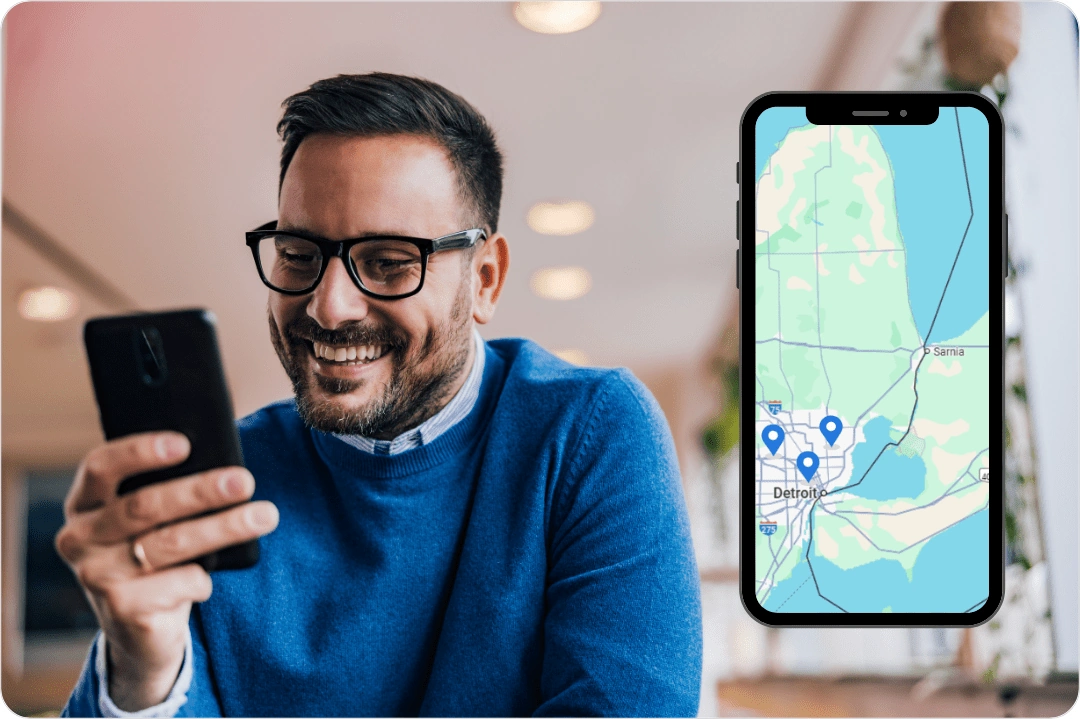
With Loneworker.com you can be equipped with the knowledge and the means to protect your employees and protect your business. Contact us today to learn more about how Loneworker.com can protect you and your employees.
How The Safe Lone Worker App Can Protect Florida Lone Workers And Employers
For Florida employers seeking practical ways to enhance lone worker safety, the Safe Lone Worker app offers a smart, scalable solution. With features like real-time GPS tracking, emergency panic buttons, fall detection, and automated check-ins, the app ensures that help can be dispatched quickly when needed.
Given Florida’s range of work environments—from remote agricultural sites to sprawling urban areas—technology plays a key role in keeping workers connected and supported. The app also provides logs and alerts that help employers stay compliant with OSHA requirements and document their safety efforts.
Florida Lone Worker Policies
As a federal OSHA state, Florida does not operate its own occupational safety and health program. All private sector employers—and most public sector workplaces—must follow federal OSHA standards. Although there is no OSHA rule that specifically governs lone work, the General Duty Clause obligates employers to identify potential hazards and take appropriate action to reduce risk.
We strongly recommend that Florida employers review OSHA guidelines regularly and consult with safety experts to maintain compliance. For official resources, visit the Occupational Safety and Health Administration. This guide is for general informational use and is not a substitute for legal or regulatory advice.
Florida Lone Worker Resources
OHS Contact Centre
- 1-866-415-8690
CDC / NIOSH
- 800-232-4636
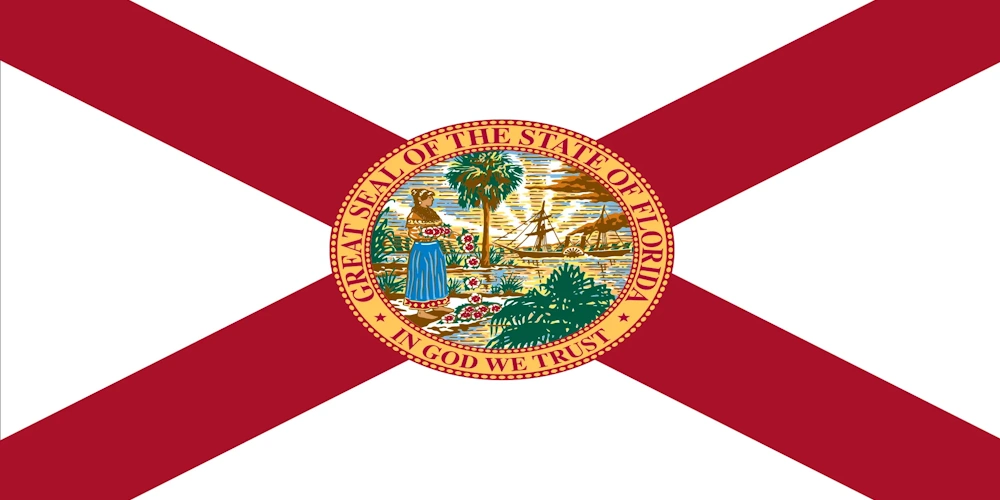
Affordable Monitoring For Lone Workers In Florida
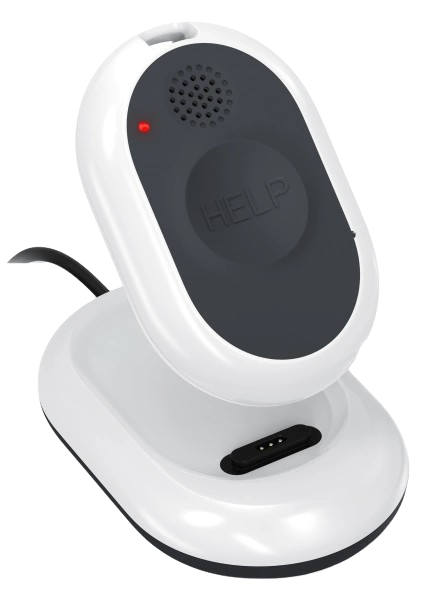
-
 Monitoring Your Employees' Safety
Monitoring Your Employees' Safety
-
 GPS Tracking And Monitoring
GPS Tracking And Monitoring
-
 Man Down Panic Alerts
Man Down Panic Alerts
-
 24/7 Protection Anywhere
24/7 Protection Anywhere
Lone Worker Legislation
Lone Worker Safety Policies And Legislation By State
-
 Alabama State Safety Policies And Legislation
Alabama State Safety Policies And Legislation
-
 Alaska State Safety Policies And Legislation
Alaska State Safety Policies And Legislation
-
 Arizona State Safety Policies And Legislation
Arizona State Safety Policies And Legislation
-
 Arkansas State Safety Policies And Legislation
Arkansas State Safety Policies And Legislation
-
 California State Safety Policies And Legislation
California State Safety Policies And Legislation
-
 Colorado State Safety Policies And Legislation
Colorado State Safety Policies And Legislation
-
 Connecticut State Safety Policies And Legislation
Connecticut State Safety Policies And Legislation
-
 Delaware State Safety Policies And Legislation
Delaware State Safety Policies And Legislation
-
 Florida State Safety Policies And Legislation
Florida State Safety Policies And Legislation
-
 Georgia State Safety Policies And Legislation
Georgia State Safety Policies And Legislation
-
 Hawaii State Safety Policies And Legislation
Hawaii State Safety Policies And Legislation
-
 Idaho State Safety Policies And Legislation
Idaho State Safety Policies And Legislation
-
 Illinois State Safety Policies And Legislation
Illinois State Safety Policies And Legislation
-
 Indiana State Safety Policies And Legislation
Indiana State Safety Policies And Legislation
-
 Iowa State Safety Policies And Legislation
Iowa State Safety Policies And Legislation
-
 Kansas State Safety Policies And Legislation
Kansas State Safety Policies And Legislation
-
 Kentucky State Safety Policies And Legislation
Kentucky State Safety Policies And Legislation
-
 Louisiana State Safety Policies And Legislation
Louisiana State Safety Policies And Legislation
-
 Maine State Safety Policies And Legislation
Maine State Safety Policies And Legislation
-
 Maryland State Safety Policies And Legislation
Maryland State Safety Policies And Legislation
-
 Massachusetts State Safety Policies And Legislation
Massachusetts State Safety Policies And Legislation
-
 Michigan State Safety Policies And Legislation
Michigan State Safety Policies And Legislation
-
 Minnesota State Safety Policies And Legislation
Minnesota State Safety Policies And Legislation
-
 Mississippi State Safety Policies And Legislation
Mississippi State Safety Policies And Legislation
-
 Missouri State Safety Policies And Legislation
Missouri State Safety Policies And Legislation
-
 Montana State Safety Policies And Legislation
Montana State Safety Policies And Legislation
-
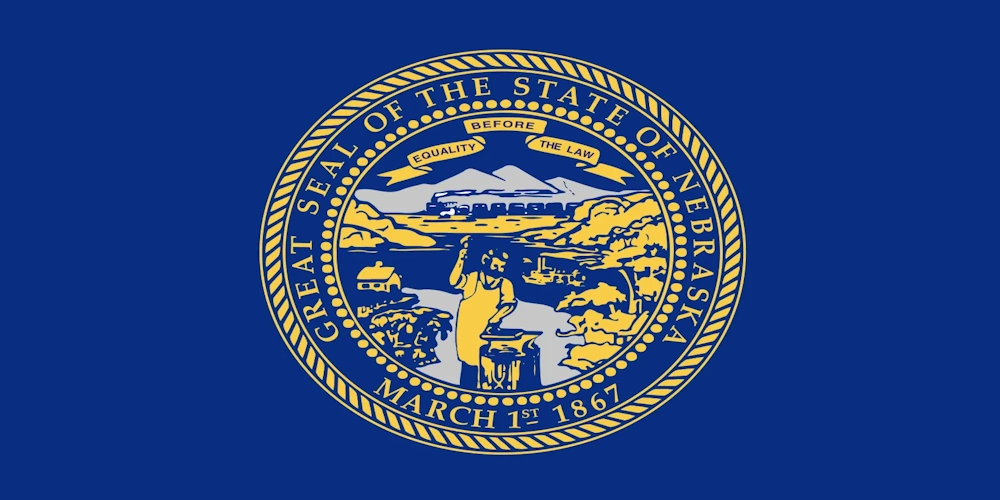 Nebraska State Safety Policies And Legislation
Nebraska State Safety Policies And Legislation
-
 Nevada State Safety Policies And Legislation
Nevada State Safety Policies And Legislation
-
 New Hampshire State Safety Policies And Legislation
New Hampshire State Safety Policies And Legislation
-
 New Jersey State Safety Policies And Legislation
New Jersey State Safety Policies And Legislation
-
 New Mexico State Safety Policies And Legislation
New Mexico State Safety Policies And Legislation
-
 New York State Safety Policies And Legislation
New York State Safety Policies And Legislation
-
 North Carolina State Safety Policies And Legislation
North Carolina State Safety Policies And Legislation
-
 North Dakota State Safety Policies And Legislation
North Dakota State Safety Policies And Legislation
-
 Ohio State Safety Policies And Legislation
Ohio State Safety Policies And Legislation
-
 Oklahoma State Safety Policies And Legislation
Oklahoma State Safety Policies And Legislation
-
 Oregon State Safety Policies And Legislation
Oregon State Safety Policies And Legislation
-
 Pennsylvania State Safety Policies And Legislation
Pennsylvania State Safety Policies And Legislation
-
 Rhode Island State Safety Policies And Legislation
Rhode Island State Safety Policies And Legislation
-
 South Carolina State Safety Policies And Legislation
South Carolina State Safety Policies And Legislation
-
 South Dakota State Safety Policies And Legislation
South Dakota State Safety Policies And Legislation
-
 Tennessee State Safety Policies And Legislation
Tennessee State Safety Policies And Legislation
-
 Texas State Safety Policies And Legislation
Texas State Safety Policies And Legislation
-
 Utah State Safety Policies And Legislation
Utah State Safety Policies And Legislation
-
 Vermont State Safety Policies And Legislation
Vermont State Safety Policies And Legislation
-
 Virginia State Safety Policies And Legislation
Virginia State Safety Policies And Legislation
-
 Washington State Safety Policies And Legislation
Washington State Safety Policies And Legislation
-
 West Virginia State Safety Policies And Legislation
West Virginia State Safety Policies And Legislation
-
 Wisconsin State Safety Policies And Legislation
Wisconsin State Safety Policies And Legislation
-
 Wyoming State Safety Policies And Legislation
Wyoming State Safety Policies And Legislation
-
 American Samoa State Safety Policies And Legislation
American Samoa State Safety Policies And Legislation
-
 Guam State Safety Policies And Legislation
Guam State Safety Policies And Legislation
-
 Northern Mariana Islands State Safety Policies And Legislation
Northern Mariana Islands State Safety Policies And Legislation
-
 Puerto Rico State Safety Policies And Legislation
Puerto Rico State Safety Policies And Legislation
-
 Washington D.C. State Safety Policies And Legislation
Washington D.C. State Safety Policies And Legislation
-
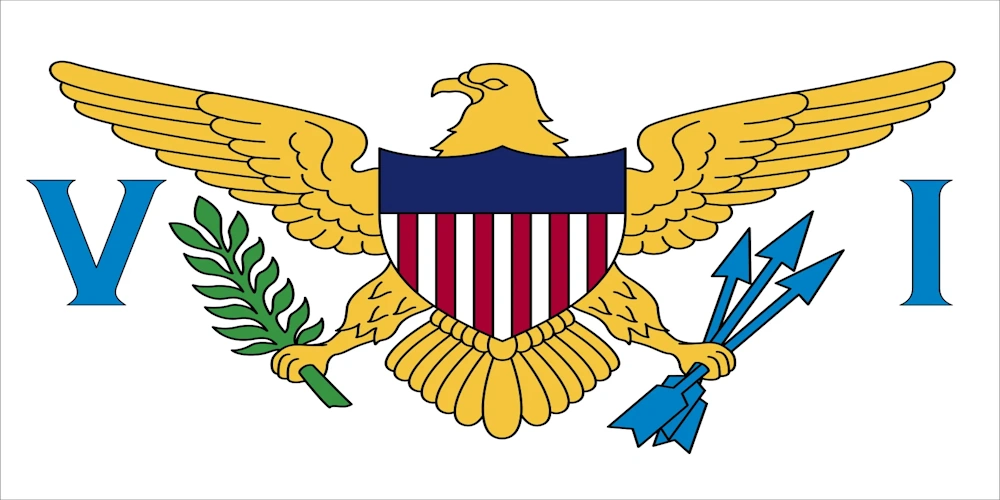 Virgin Isles State Safety Policies And Legislation
Virgin Isles State Safety Policies And Legislation




